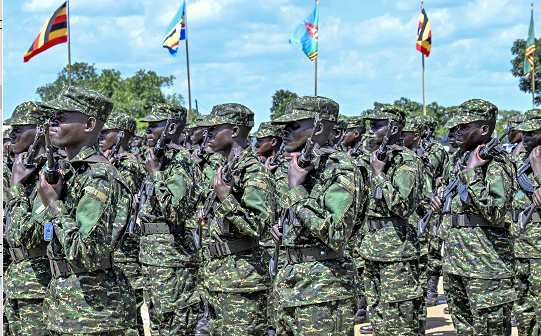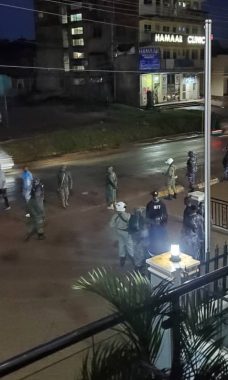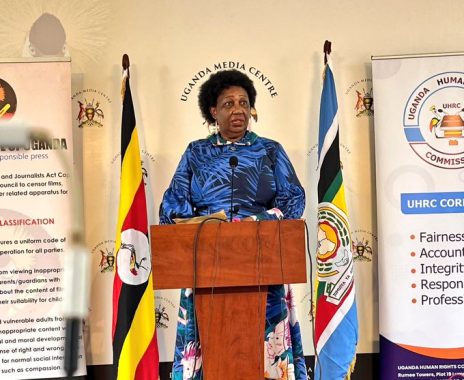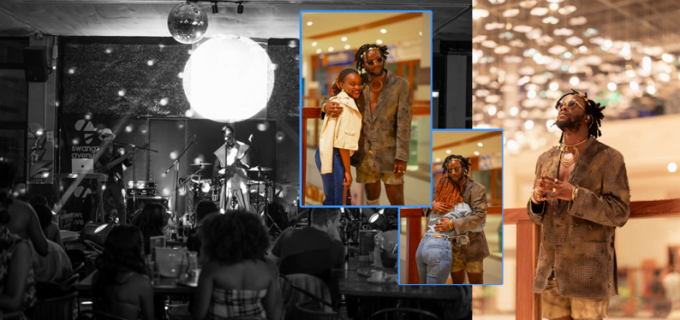The Constitutional Court has canceled the offense of pornography and other sections of the Anti-Pornography Act on grounds that it is unconstitutional.
This dissolves the powers of the Anti-Pornography Committee in the enforcement and monitoring of the compliance of the Act.
This follows a petition by 9 human rights activists filed in 2014 challenging sections of the anti-pornography act 2014 saying it contravenes the fundamental rights and freedoms enshrined in the constitution.
The petitioners include; Center for Domestic Violence Prevention, Women organization Network for Human Rights Advocacy, Prof Sylvia Tamale, Sarah Kihika, Lilian Drabo, Strategic Initiative for Women in the Horn of Africa, Uganda Health and Scientific Press Association, Human Rights Network for Journalists – Uganda and Lina Zedriga.
The 4 persons and 5 charity organizations petitioned the court challenging the legality of Sections 2, 11, 13 and 15 of the Anti-Pornography Act of 2014.
Section 2; “pornography” means any representation through publication, exhibition, cinematography, indecent show, information technology, or by whatever means, of a person engaged in real or simulated explicit sexual activities or any representation of the sexual parts of a person for primarily sexual excitement;
-“procure” means to purchase or obtain or import or being found in possession or custody of, or being found viewing in a premise, any matter prohibited by this Act, except when authorized in writing by the Committee for appropriate anti-pornography purposes such as education and sensitization by personnel approved by the Committee;
-“publish” means to put out written information or make available written information to the public or any person through any print medium;
-“traffic” means to deal in or cause or permit or aid the provision or circulation of pornographic matter by way of trade or publishing or entertainment or programming or unrestricted internet access or any other means or purpose.
Section 11; The Anti-Pornography Committee may, in the performance of its duties under this Act or any regulations made under this Act, at all reasonable times and without a warrant.
i-carry out periodic inspection of any establishment which imports, exports, stores, sells, distributes or uses equipment or data that is likely to give the public access to pornography;
ii-seize any equipment, document or any other thing which it believes has been used in the commission of an offense against this Act or regulations made under this Act;
iii-close any internet service provider who promotes publishes, sells, or imports pornography contrary to this Act; or cause a police officer to arrest any person whom it believes has committed an offence under this Act.
Section 13; A person shall not produce, traffic in, publish, broadcast, procure, import, export, sell or abet any form of pornography.
i- A person who produces or participates in the production of, or traffics in, publishes, broadcasts, procures, imports, exports, or in any way abets pornography contrary to subsection (1) commits an offense and is liable, on conviction, to a fine not exceeding five hundred currency points or imprisonment not exceeding ten years or both.
Section 15; Where information is brought to the attention of the court that there exists in premises, an object or material containing pornography or an act or event of a pornographic nature, the court shall issue a warrant for the seizure of the object or material and for the arrest of the person promoting the material or object.
i)An authorized person in possession of a search warrant issued by the court may enter any premises and inspect any object or material including any computer, and seize the object, material or gadget for the purpose of giving effect to this Act.
ii)A person who obstructs an authorized person in the carrying out of any function under this section commits an offense and is liable, on conviction, to a fine not exceeding two hundred and fifty currency points or imprisonment not exceeding five years or both.
The petitioners told the court that these sections of the Act create the offense of pornography in an overly broad, vague, and subjective manner.
The petitioners also argued that the definition of the law in question further contravened the fundamental rights and freedoms enshrined in the constitution.
In a unanimous judgment, a panel of 5 justices of the constitutional court ruled in favor of the petitioners and condemned the government(Attorney General) to pay half of the legal costs to the nine petitioners.
A panel of five Judges; Frederick Egonda- Ntende, Elizabeth Musoke, Cheborion Barishaki, Muzamiru Kibeedi and Irene Mulyagonja unanimously declared unconstitutional Sections 2 which defines and creates the offence of pornography, 11, 13 and 15 Anti-Pornography Act.
The court heard that the definition of Pornography under Section 2 of the Anti-Pornography Act of 2014 contravenes the principle of legality since it is inconsistent with articles of the constitution which make it the most supreme law of the country.
In the lead judgment dated August 13th, 2021, Justice Egonda-Ntende held that;“An imprecise statement of the prohibited conduct may lead to inconsistent enforcement of the law, uncertain application of the law, or failure to preclude conduct that it was intended to prohibit,”.
He, however, trashed the petitioner’s argument on the definition of pornography saying the words ‘stimulated explicit sexual activities, ‘sexual parts’, ‘primary sexual excitement’ is not vague, ambiguous, uncertain, and subjective.
The Judge held that he was unable to determine either from the provision defining the crime of pornography or from any other portion of the Act, the legislative objective for the criminalization of pornography.
“What harm would result to society, if publication, exhibition or other representation of images of sexual parts of the human body or sexual activities primarily for sexual excitement, is not prohibited? None has been put forward by the respondent (Attorney General) except from the bar where it is intimated implicitly as harm to women and children,” held Justice Egonda-Ntende.
According to the Court decision, even if one were to accept that the legislative objective of the challenged provisions and the Act was to protect women and children, it was not demonstrated that the criminalization of pornography is rationally connected to that legislative objective.
Justice Egonda-Ntende explained that he was forced to find that sections 2 and 13 of the Act impair the fundamental freedom of expression and such impairment is not justified by the Constitution.
On the issue of powers granted to the Pornography Control Committee, the Judges have reasoned that since they have already found that sections which create the offense of pornography to be inconsistent, it follows that the Committee which is led by Dr. Annette Kezabu may no longer exercise powers under the Act.















